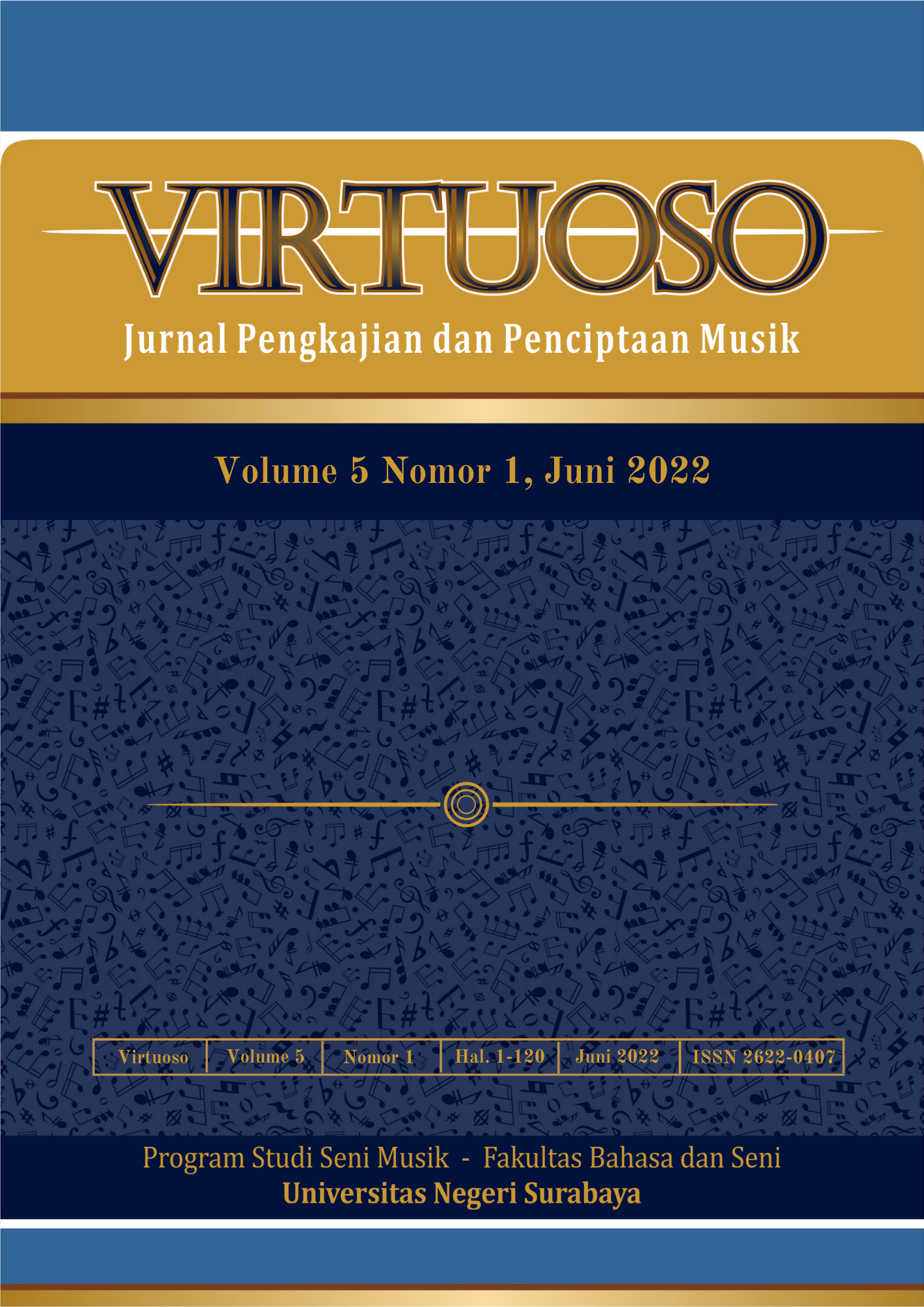Pengembangan Bahan Ajar Mata Kuliah Gitar Tingkat Indria Secara Online di Program Studi Musik FBS UNESA
Main Article Content
Abstract
Downloads
Article Details

This work is licensed under a Creative Commons Attribution-NonCommercial-ShareAlike 4.0 International License.
The copyright of the received article once accepted for publication shall be assigned to the journal as the publisher of the journal. The intended copyright includes the right to publish the article in various forms (including reprints). The journal maintains the publishing rights to the published articles.
References
Arikunto, Suharsimi. (2009). Dasar-Dasar Evaluasi Pendidikan. Jakarta: Penerbit Bumi Aksara
Banoe, Pono. (2003). Kamus Musik. Yogyakarta: Kanisius
Budidharma, Pra. (2001). Metode Vokal Profesional. Jakarta; Elex Media Komputindo
Creswell, John W. (2014). Research Design: Pendekatan Kualitatif, Kuantitatif, dan Mixed. Yogyakarta: Pustaka Pelajar.
Djohan. (2009). Psikologi Musik. Yogyakarta: Best Publisher.
Jamalus, Drs. (1988). Pengajaran Musik Melalui Pengalaman Musik. Jakarta: Direktorat Jenderal Pendidikan Tinggi Departemen Pendidikan dan Kebudayaan.
Majid, Abdul. (2008). Perencanaan Pembelajaran: Mengembangkan Standar Kompetensi Guru. Bandung: PT Remaja Rosdakarya.
Nursalim, Mochamad dkk. (2007). Psikologi Pendidikan. Surabaya: Unesa University Press.
Prier, Karl-Edmund.( 2011). Kamus Musik. Yogyakarta: Pusat Musik Liturgi.
Prier, Karl-Edmund. (1993). Sejarah Musik Jilid 1. Yogyakarta: Pusat Musik Liturgi.
Prawiradilaga, Dewi Salma. (2007). Prinsip Disain Pembelajaran. Jakarta: Kencana (Prenada Media Group).
Soeharto, M. (1993). Belajar Notasi Balok. Jakarta: Grasindo.
Sukohardi, Drs. Al. (2011). Edisi Revisi - Teori Musik Umum. Yogyakarta: Pusat Musik Liturgi.
Sudjana, Nana dan Ibrahim. (2001). Penelitian dan Penilaian Pendidikan. Bandung: Sinar Baru Algensindo.
Sugiyono. 2011. Metode Penelitian Pendidikan: Pendekatan Kuantitatif, Kualitatif, dan R&D. Bandung: Penerbit Alfabeta.
Sukmadinata. (2012). Pengembangan Kurikulum Teori dan Praktik. PT. Remaja Rosdakarya. Bandung
Sukmadinata. (2015). Metodologi Penelitian Pendidikan.PT. Remaja Rosdakarya. Bandung
Widodo, C. dan Jasmadi. (2008). Buku Panduan Menyusun Bahan Ajar. Jakarta: PT Elex Media Komputindo

